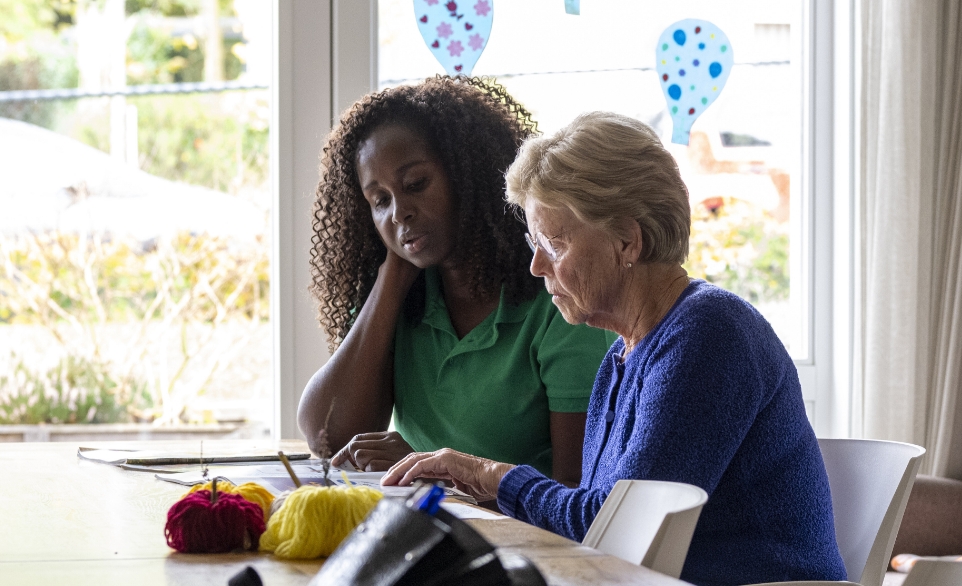
In the fast-paced, under-resourced world of social care, kindness can sometimes feel like a luxury—an optional extra squeezed between back-to-back rotas, endless regulations, and the sheer urgency of the job. But the truth is, kindness isn’t a soft skill. It’s a strategic imperative.
If we want to build care services that retain staff, attract families, earn the trust of regulators, and leave a lasting impact—then kindness must be baked into the culture of our organisations.
Because in care, kindness isn’t just a nice-to-have. It’s everything.
What Does a Kind Culture Look Like in Practice?
Kindness in a care business doesn’t mean avoiding hard conversations or lowering standards. It means creating an environment where people:
- Feel safe to speak up
- Know they’ll be listened to without fear of judgment
- Are supported through mistakes, not punished for them
- Understand that their wellbeing matters just as much as their output
- See their leaders lead with empathy, not ego
Kindness is the foundation of trust. And trust is the foundation of high performance.
Why Kindness Works (Even When Things Are Tough)
You might be thinking, “That’s great in theory—but what about when we’re short-staffed, behind on audits, and everyone’s stressed out?”
That’s exactly when kindness matters most.
Here’s why:
It Improves Staff Retention
Care is hard work. When staff feel unsupported or blamed, they burn out faster. But when they feel cared for as humans—not just employees—they’re more likely to stay.
It Increases Productivity
People don’t work harder because they’re scared. They work harder because they feel seen, valued, and appreciated. A little kindness goes a long way toward motivation.
It Enhances Reputation
Families notice. Inspectors notice. Word spreads when your care service is full of kind, compassionate people who work well together.
It Reduces Mistakes
When staff feel safe admitting when something’s gone wrong, you can intervene sooner. Blame culture hides problems. Kindness surfaces them early.
The Business Case for Kindness
Still not convinced? Let’s talk numbers.
According to research:
- 79% of employees who feel valued say they work harder.
- Businesses with high-trust cultures outperform their competitors in productivity, profitability, and staff retention.
- In social care, services rated “Outstanding” often mention team culture, leadership kindness, and support systems in their reports.
In other words, kindness drives results.
Not because it’s soft—but because it’s smart.
How to Build a Culture of Support — One Step at a Time
Building a culture of kindness doesn’t mean overhauling your business overnight. It starts with small, intentional steps that signal: We care about our people here.
Here are seven practical ways to begin:
-
Lead With Vulnerability
Tell your team when you’ve made a mistake. Say when you’re struggling. You’ll give others permission to be real too.
-
Celebrate Small Wins
A simple “well done” on a tough shift or a handwritten thank you card can shift morale more than you think.
-
Train Managers in Empathy
Leadership is influence. If your managers don’t know how to support their teams emotionally, they need training—not just task lists.
-
Create Peer Support Structures
Encourage buddy systems or mentorship across your team. When colleagues support each other, resilience grows.
-
Respond with Curiosity, Not Criticism
If someone underperforms or makes an error, ask: “What support would have helped here?” rather than jumping to punishment.
-
Prioritise Mental Health
Make space for breaks. Share wellbeing resources. Don’t expect staff to be robots—they’re human.
-
Model It Every Day
As the founder or manager, your tone sets the tone. If you’re kind, others will follow.
A Culture That Cares for Its Carers
You cannot provide outstanding care if your carers feel broken.
Let that sink in.
So many services pour energy into documentation, compliance, and strategy (and rightly so)—but forget that people deliver care, not policies.
And those people need kindness. Consistently. Not just on Mental Health Awareness Day.
So, ask yourself:
- How do your team members feel at the end of their shift?
- Would they describe your workplace as supportive?
- Do they feel safe to speak up when something’s wrong?
If not, kindness may be the missing ingredient.
Kindness Doesn’t Mean Weakness
There’s a myth in business that being kind means being soft—or that it makes it harder to hold people accountable.
Not true.
You can be kind and set clear expectations.
>You can be kind and let someone go when they’re not the right fit.
>You can be kind and demand excellence.
The difference is in how you do it.
Kindness says: “I believe in you, and I’ll support you to grow.”
What Big Sister Is Doing to Champion Kindness
At Big Sister, kindness isn’t a tagline—it’s a framework.
We’ve built it into:
- SisterStaff – where we focus on matching carers with employers who treat them with dignity.
- Resilient Carers – our blog and YouTube playlist dedicated to helping frontline workers thrive.
- Founder’s Circle – where we support business owners not just to grow their company but grow as humans.
Because the future of care isn’t just more technology or bigger contracts.
The future of care is compassion-led leadership.
And it starts with you.
- Explore more conversations about culture and leadership on our YouTube playlist: United in Care @bigsistercare
- Follow @bigsisterhomecare for weekly inspiration, resources, and real stories from care leaders across the UK and US.
- Download our brochure, or book a call
Final Word: Kindness Is a Legacy
The culture you create today becomes your legacy tomorrow.
So, whether you lead a small team or a growing care empire—make kindness your strategy.
Your staff will feel it.
>Your clients will feel it.
>Your community will feel it.
And most of all, you will feel it too.
Let’s build care businesses where kindness isn’t the exception—it’s the expectation.













